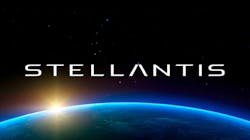Stellantis Ventures Invests in Sodium-Ion Technology
Stellantis Ventures, the corporate venture fund of auto giant Stellantis N.V., has invested in Tiamat, a French company that hopes to commercialize sodium-ion battery technology.
Tiamat, a spin-off of the French National Centre for Scientific Research, was one of 11 to receive a Stellantis Ventures Award in 2023 and is the first in the world to commercialize a sodium-ion technology in an electrified product.
Tiamat executives plan to use the use proceeds from the fundraising round that included Stellantis Ventures’ investment to launch the construction of a sodium-ion battery plant in France. There, they will manufacture batteries for power tools and stationary storage applications before scaling production of second-generation products for electric-vehicle applications.
Sodium-ion technology has come to the forefront in recent years as an alternative to lithium-ion chemistry and recent studies have highlighted some of its advantages: a lower cost per kilowatt-hour, sustainability due to the natural abundance of its raw materials, and overall improved safety due to less toxicity and being nonflammable.
The batteries have a variety of uses other than just traditional EV applications: In late December, United Airline Ventures announced its investment in the technology through battery maker Natron Energy to electrify ground support equipment.
Ned Curic, Stellantis’ chief engineering and technology officer, said the investment and similar ones are a key part in achieving the company’s Dare Forward 2030 to become carbon-neutral by 2038. Executives hope to sell only battery-powered passenger cars in Europe and get to a 50% passenger car and light-duty truck BEV sales mix in the United States by 2030. To get there, the company will need to acquire roughly 400 GWh of battery capacity.
“Our customers are asking for emissions-free vehicles that offer a combination of robust driving range, performance and affordability,” Curic said. “This is our North Star, as Stellantis and its partners work today to develop ground-breaking technologies for the future.”
